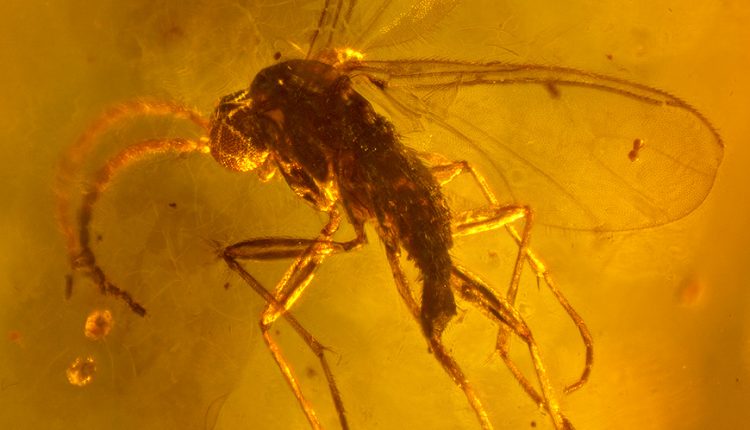Researchers Unearth Rare 35-Million-Year-Old Insect Trapped in Baltic Amber

In a remarkable scientific breakthrough, a team of researchers from the University of Granada (UGR) has uncovered a new species of insect known as Calliarcys antiquus. This ancient insect, belonging to the mayfly family, was discovered perfectly preserved within a piece of Baltic amber that dates back to a staggering 35 to 47 million years ago.
Led by Professor Javier Alba-Tercedor from UGR’s Department of Zoology, the team utilized an advanced imaging technique called microtomography to meticulously examine and identify the insect. This cutting-edge method, similar to X-ray imaging, enabled the researchers to conduct a detailed analysis of the specimen despite the amber’s limited transparency. The findings provide valuable insights into the world of ancient insects and underscore the significance of studying organisms preserved in amber.
Amber, which is fossilized tree resin, has the exceptional ability to capture and preserve various organisms over millions of years. When insects become trapped in the sticky resin, they are engulfed and encapsulated, effectively freezing them in time. As a result, amber serves as a unique time capsule, offering researchers a glimpse into ancient ecosystems and shedding light on the biodiversity that existed millions of years ago.
The discovery of Calliarcys antiquus adds to our understanding of prehistoric insect life and highlights the diversity of species that once roamed the Earth. By analyzing the intricate details of the insect’s anatomy and morphology, scientists can gain valuable insights into its evolutionary history and ecological significance.
The study of ancient insects trapped in amber has provided numerous breakthroughs in the field of paleontology. Not only do these findings contribute to our knowledge of past ecosystems, but they also offer clues about the evolution of modern-day species and their adaptations over time.
Moreover, the discovery of Calliarcys antiquus emphasizes the importance of preserving natural resources such as amber. These fossilized remnants serve as irreplaceable records of Earth’s history and provide scientists with invaluable specimens for further research and exploration.
The research conducted by the team at the University of Granada represents a significant milestone in our understanding of prehistoric insects. By unlocking the secrets held within ancient amber, scientists can piece together the puzzle of Earth’s past and gain deeper insights into the diverse and intricate tapestry of life that has evolved over millions of years.
